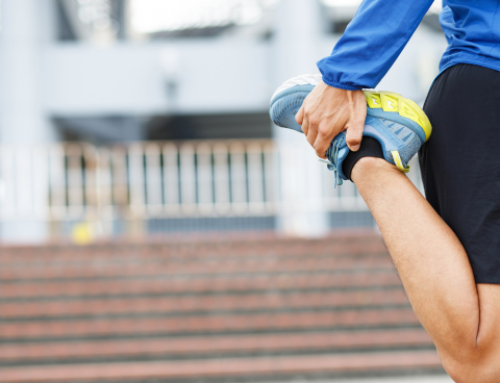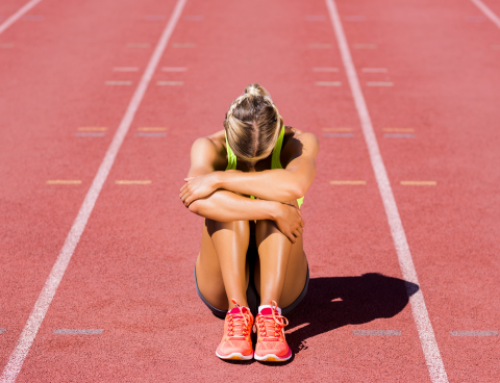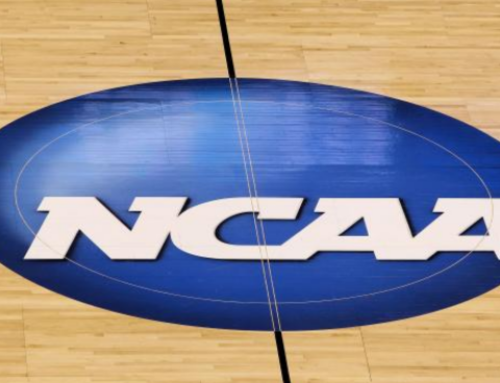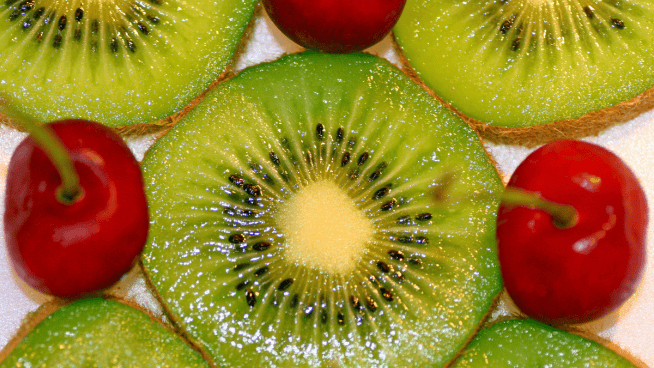How Athletes Are Affected by the Racial Issues of Today
America has a very long history of tumultuous race relations amongst its various communities. The abolition of slavery didn’t end racism, and the Civil Rights movement of the 1960s didn’t solve every problem faced by Black Americans either. It’s never been simple and easy. Instead, the Black community in America continues to face a long and difficult journey, one that is particularly hazardous to the mental health of our athletes.
Recent events over the course of the past year have unleashed a fresh wave of attention for the racial issues of our country. George Floyd’s death notably got just about everyone paying attention to issues that have existed for the Black community for years. While everyone was paying attention, though, not everyone was affected in the same way. With both the NBA and the NFL reporting over 70% of their players to be Black (3), one group that is strongly affected by the continuous loss of Black lives is our athletes.
The Loss of Black Lives Through a Pandemic and More
These athletes have spent their lifetimes watching fellow members of the Black community die around them. This is not new.
Yet, it was extraordinary circumstances over this past year that allowed for a much more incredible showing of protests to erupt across the country. It wasn’t just Ahmaud Arbery, Breonna Tayor, and George Floyd that brought millions to the streets in the midst of a global pandemic (6).
It was that the pandemic disproportionately affected Black Americans, which, as the age-old saying, “If white America has a cold, black America has the flu” (9) makes clear to be just part of another trend. It was the evident continuation of Black lives being underrated and undertreated in hospitals (8) and in our society. It was the evidence the public needed to realize that Black lives have not ceased to be needlessly lost, largely because police brutality has not ended.
The American Experience of the Black Community: Police Brutality and White Privilege
This is the reality of America for our Black athletes and other members of the Black community. Mistakes or missteps for which a while American may be given a pass could be the end of the line for a Black American. Even situations that should be normal and every day, such as going for a run in your own neighborhood, may now elicit fear within the Black community. The reason for all of this – the reason we cannot feel safe the way our white neighbors do – is that the police force meant to keep us safe is often the very one posing a threat.
A contrast between this American experience and the one that white privilege allows was seen by many through recent events at our nation’s Capitol. When a largely white mob stormed the U.S. Capitol on January 6, 2021, certain individuals, including LeBron James of the Los Angeles Lakers, noted the significant difference in how this unfolded versus the treatment of last summer’s protestors. James remarked that outcomes would have been different if there were those like his own family members in that crowd, “There’s no ifs, ands or buts – we already know what would’ve happened to my kind if anyone would have even got close to the Capitol, let along storm inside the offices, inside the hallways.” (1)
He is not the only athlete that is hurting due to the racial issues of today. Anthony Davis agreed that there is a double standard, pointing out that phrases such as “Once the looting starts, the shooting starts” were said during the Black Lives Matter protests but seemed to have been forgotten during this more recent event (1). As well, Kyrie Irving chose not to play after having called for other players not to return in light of all that is taking place with these racial injustices (2). Truly, these issues impact all of our Black athletes, as they must face this truth of our society every single day.
The Impact of Race Issues on Black Athletes
With so many of our American athletes also making up a part of the Black community, the importance of this topic to the realm of sports must be acknowledged. Athletes do not exist in a bubble of their professional careers. Just like anyone else, they have personal lives, worries, and struggles with mental health.
And for our Black athletes, these issues may be a particularly difficult struggle to add on top of everything else they must deal with.
Another Burden to Add to the Black Athlete Experience
One reason behind the high percentage of Black athletes on our nation’s sports teams: many view the athletic path as their best chance at a better life, at a success story ends. There is a narrative pushed towards the young that playing a sport may be their only way to achieve prosperity (3). Yet even joining a winning team doesn’t rid one of every problem they may face.
In fact, for many athletes, the pressure to perform and make that success story come true can be highly detrimental to their mental health (3). For Black athletes, in particular, journeys with mental health are not easy. One reason behind this is that they often are made to feel as if they have no voice. Despite being in billions of dollars to perform, when they feel compelled to speak on their pain, they may be told something along the lines of “shut up and dribble.” Top athletes are supposedly important figures, but when it comes to their emotions and the issues impacting their mental health, they are essentially told they don’t matter at all.
Obviously, the mental health of Black athletes is especially complicated by the atmosphere in America right now. It has been found that there is a measurable drop in mental health among black Americans each time an unarmed black man is killed by police (11).
And we have to wonder, what does all of this mean for the athletic performance of these players?
Suffering Mental Health Leads to Poorer Performance by Athletes
Regardless of what sort of work you do, this sort of stress weighing on you will make tasks much more difficult to complete. Landing in a positive place with your mental health can truly be essential to finding yourself capable of functioning in the workplace. Naturally, it is the same for high-performing athletes who find it impossible to focus on the game while under the weight of an entire country’s issues with race relations.
There are some times in one’s life when mental health simply must take priority. For many of our Black athletes, this may be their time.
After all, how can these black athletes possibly perform well in their sport while the lives of people that look like them are being taken by the police? How can they celebrate their wins inside the arenas when their reality just outside of the arena’s doors is the unjustifiable loss of black lives and the fear that it could also be them or their child?
With this reality, it’s simply not possible.
This is the Reality for Our Athletes
Basketball, football, and all the rest of the highly competitive sports set these athletes against each other for the game again and again. Yet, these racial issues they face unite athletes together, all into one team.
These are not problems that can be defeated by only a few. And no mental health issue should be faced alone.
Our Black athletes live through this reality together, and, hopefully, with our support as well.
Sources:
- https://www.espn.com/nba/story/_/id/30672218/us-capitol-siege-shows-live-two-americas
- https://www.si.com/nba/2021/01/08/nets-kyrie-irving-out-personal-reasons-not-in-contact-with-nash
- https://thesuavereport.com/2020/07/13/the-mental-state-of-the-black-athlete-in-america-pt-1-the-wayside/
- https://thesuavereport.com/2020/08/08/the-mental-state-of-the-black-athlete-in-america-part-2-grass-isnt-greener/
- https://www.si.com/nba/2020/08/24/jacob-blake-shooting-bucks-statement
- https://www.washingtonpost.com/politics/2020/08/05/how-coronavirus-pandemic-helped-floyd-protests-become-biggest-us-history/
- https://www.aljazeera.com/features/2020/12/31/2020-the-year-black-lives-matter-shook-the-world
- https://www.forbes.com/sites/robertpearl/2020/06/15/coronavirus-black-lives-matter-healthcare/?sh=6cf669ff6257
- https://www.vox.com/identities/2020/4/7/21211849/coronavirus-black-americans
- https://abcnews.go.com/Politics/viruses-covid-racism-devastate-black-community-threaten-americas/story?id=71016538
- https://www.latimes.com/science/story/2020-06-02/cause-of-death-covid-19-police-violence-or-racism
- https://www.theatlantic.com/magazine/archive/2020/10/the-next-reconstruction/615475/
RECOMMENDED FOR YOU
MOST POPULAR
How Athletes Are Affected by the Racial Issues of Today
America has a very long history of tumultuous race relations amongst its various communities. The abolition of slavery didn’t end racism, and the Civil Rights movement of the 1960s didn’t solve every problem faced by Black Americans either. It’s never been simple and easy. Instead, the Black community in America continues to face a long and difficult journey, one that is particularly hazardous to the mental health of our athletes.
Recent events over the course of the past year have unleashed a fresh wave of attention for the racial issues of our country. George Floyd’s death notably got just about everyone paying attention to issues that have existed for the Black community for years. While everyone was paying attention, though, not everyone was affected in the same way. With both the NBA and the NFL reporting over 70% of their players to be Black (3), one group that is strongly affected by the continuous loss of Black lives is our athletes.
The Loss of Black Lives Through a Pandemic and More
These athletes have spent their lifetimes watching fellow members of the Black community die around them. This is not new.
Yet, it was extraordinary circumstances over this past year that allowed for a much more incredible showing of protests to erupt across the country. It wasn’t just Ahmaud Arbery, Breonna Tayor, and George Floyd that brought millions to the streets in the midst of a global pandemic (6).
It was that the pandemic disproportionately affected Black Americans, which, as the age-old saying, “If white America has a cold, black America has the flu” (9) makes clear to be just part of another trend. It was the evident continuation of Black lives being underrated and undertreated in hospitals (8) and in our society. It was the evidence the public needed to realize that Black lives have not ceased to be needlessly lost, largely because police brutality has not ended.
The American Experience of the Black Community: Police Brutality and White Privilege
This is the reality of America for our Black athletes and other members of the Black community. Mistakes or missteps for which a while American may be given a pass could be the end of the line for a Black American. Even situations that should be normal and every day, such as going for a run in your own neighborhood, may now elicit fear within the Black community. The reason for all of this – the reason we cannot feel safe the way our white neighbors do – is that the police force meant to keep us safe is often the very one posing a threat.
A contrast between this American experience and the one that white privilege allows was seen by many through recent events at our nation’s Capitol. When a largely white mob stormed the U.S. Capitol on January 6, 2021, certain individuals, including LeBron James of the Los Angeles Lakers, noted the significant difference in how this unfolded versus the treatment of last summer’s protestors. James remarked that outcomes would have been different if there were those like his own family members in that crowd, “There’s no ifs, ands or buts – we already know what would’ve happened to my kind if anyone would have even got close to the Capitol, let along storm inside the offices, inside the hallways.” (1)
He is not the only athlete that is hurting due to the racial issues of today. Anthony Davis agreed that there is a double standard, pointing out that phrases such as “Once the looting starts, the shooting starts” were said during the Black Lives Matter protests but seemed to have been forgotten during this more recent event (1). As well, Kyrie Irving chose not to play after having called for other players not to return in light of all that is taking place with these racial injustices (2). Truly, these issues impact all of our Black athletes, as they must face this truth of our society every single day.
The Impact of Race Issues on Black Athletes
With so many of our American athletes also making up a part of the Black community, the importance of this topic to the realm of sports must be acknowledged. Athletes do not exist in a bubble of their professional careers. Just like anyone else, they have personal lives, worries, and struggles with mental health.
And for our Black athletes, these issues may be a particularly difficult struggle to add on top of everything else they must deal with.
Another Burden to Add to the Black Athlete Experience
One reason behind the high percentage of Black athletes on our nation’s sports teams: many view the athletic path as their best chance at a better life, at a success story ends. There is a narrative pushed towards the young that playing a sport may be their only way to achieve prosperity (3). Yet even joining a winning team doesn’t rid one of every problem they may face.
In fact, for many athletes, the pressure to perform and make that success story come true can be highly detrimental to their mental health (3). For Black athletes, in particular, journeys with mental health are not easy. One reason behind this is that they often are made to feel as if they have no voice. Despite being in billions of dollars to perform, when they feel compelled to speak on their pain, they may be told something along the lines of “shut up and dribble.” Top athletes are supposedly important figures, but when it comes to their emotions and the issues impacting their mental health, they are essentially told they don’t matter at all.
Obviously, the mental health of Black athletes is especially complicated by the atmosphere in America right now. It has been found that there is a measurable drop in mental health among black Americans each time an unarmed black man is killed by police (11).
And we have to wonder, what does all of this mean for the athletic performance of these players?
Suffering Mental Health Leads to Poorer Performance by Athletes
Regardless of what sort of work you do, this sort of stress weighing on you will make tasks much more difficult to complete. Landing in a positive place with your mental health can truly be essential to finding yourself capable of functioning in the workplace. Naturally, it is the same for high-performing athletes who find it impossible to focus on the game while under the weight of an entire country’s issues with race relations.
There are some times in one’s life when mental health simply must take priority. For many of our Black athletes, this may be their time.
After all, how can these black athletes possibly perform well in their sport while the lives of people that look like them are being taken by the police? How can they celebrate their wins inside the arenas when their reality just outside of the arena’s doors is the unjustifiable loss of black lives and the fear that it could also be them or their child?
With this reality, it’s simply not possible.
This is the Reality for Our Athletes
Basketball, football, and all the rest of the highly competitive sports set these athletes against each other for the game again and again. Yet, these racial issues they face unite athletes together, all into one team.
These are not problems that can be defeated by only a few. And no mental health issue should be faced alone.
Our Black athletes live through this reality together, and, hopefully, with our support as well.
Sources:
- https://www.espn.com/nba/story/_/id/30672218/us-capitol-siege-shows-live-two-americas
- https://www.si.com/nba/2021/01/08/nets-kyrie-irving-out-personal-reasons-not-in-contact-with-nash
- https://thesuavereport.com/2020/07/13/the-mental-state-of-the-black-athlete-in-america-pt-1-the-wayside/
- https://thesuavereport.com/2020/08/08/the-mental-state-of-the-black-athlete-in-america-part-2-grass-isnt-greener/
- https://www.si.com/nba/2020/08/24/jacob-blake-shooting-bucks-statement
- https://www.washingtonpost.com/politics/2020/08/05/how-coronavirus-pandemic-helped-floyd-protests-become-biggest-us-history/
- https://www.aljazeera.com/features/2020/12/31/2020-the-year-black-lives-matter-shook-the-world
- https://www.forbes.com/sites/robertpearl/2020/06/15/coronavirus-black-lives-matter-healthcare/?sh=6cf669ff6257
- https://www.vox.com/identities/2020/4/7/21211849/coronavirus-black-americans
- https://abcnews.go.com/Politics/viruses-covid-racism-devastate-black-community-threaten-americas/story?id=71016538
- https://www.latimes.com/science/story/2020-06-02/cause-of-death-covid-19-police-violence-or-racism
- https://www.theatlantic.com/magazine/archive/2020/10/the-next-reconstruction/615475/











